Would anyone know who was probably the best warrior of all time? I am not talking about generals or chiefs but about those who were in the front line, fighting with the troops. Surely names like El Cid, Tlahuicole, Diego García de Paredes, Miyamoto Musashi or Tzilacaltzin, to name a few, will come to mind for many. But they would all pale next to a Roman tribune who fought in a hundred and twenty battles, received forty-five wounds, killed three hundred enemies, and won an unparalleled number of decorations. He was called Lucio Sicio Dentato.
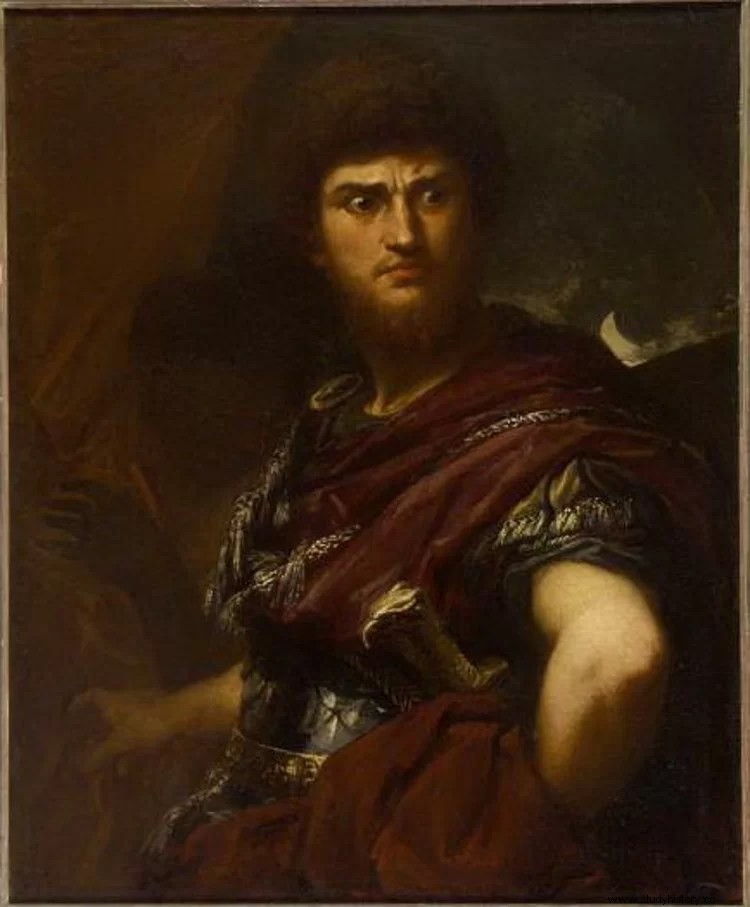
As is often the case with characters from Antiquity, it is difficult to draw the line between history and legend. In this case even more so, since Dentatus lived in the early period of the republic, between the 6th and 5th centuries BC. A context characterized, above all, by the Roman territorial expansion and the internal conflict between patricians and plebeians, two episodes that determined the life of a man who was born, it is estimated, around the year 514 BC. That is, four before the last king, Tarquiniusthe Proud, was overthrown. , which meant the creation of the Republic, the establishment of a permanent Senate and the appointment of a two-headed consulate to govern.
Tarquin was not resigned to the loss of his throne and tried to recover it several times with the help of the Etruscans and other surrounding peoples, crashing in all of them and causing the opposite effect:the new regime was not only consolidated but also gave Rome the primacy in the region. And, meanwhile, the young Dentatus (a cognomen which obviously means toothed, born with teeth) began his military career at seventeen years of age. By then, circumstances had caused the army to go from being made up of the original two legions -one for each consul- to a dozen (apart from private contingents associated with the gens , as we saw in the article dedicated to the Battle of Cremera), an initiative adopted by Manius Valerius Maximus, who was appointed dictator to face external threats.
The original legions were made up of various units that reflected the socioeconomic status of their members. Commanders and officials came from the patrician nobility; the equites (cavalry) were wealthy young men with the ability to buy a horse; the candles (light infantry), poor citizens; and the heavy infantry, made up of middle-class citizens, was divided into hastati , princeps and triarii depending on the increasing degree of military experience they had. Dentato was a plebeian and, furthermore, he distinguished himself in the confrontation that this estate had with the patricians, intensified after the disappearance of the moderating power exercised by the monarchy.
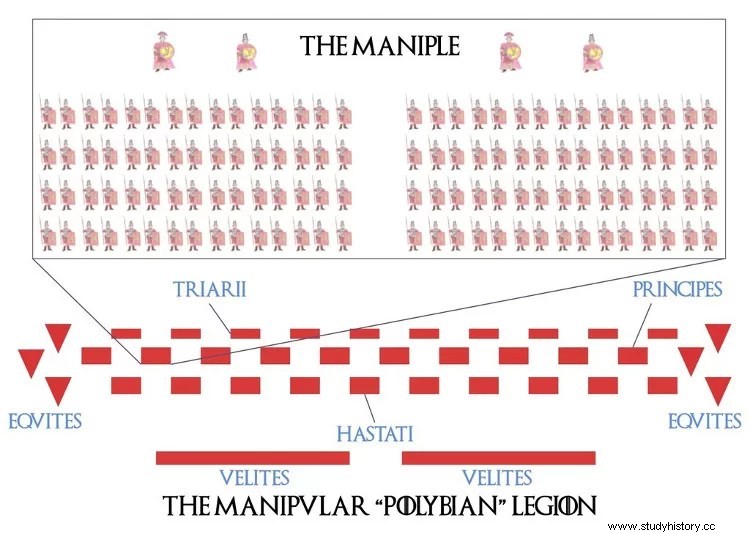
That dichotomy, which would last a couple of centuries, was basically reflected in three plebeian claims:equal rights, legislation on the debts that gripped them and the right to obtain public lands. The first spark of rebellion broke out in 494 BC, with Rome under threat from Volscians, Aequi and Sabines. It was possible to overcome it on the battlefield when the commoners collaborated with the commitment that their demands would be met, but then the promise fell on deaf ears and then they carried out the famous Secessio plebis , a kind of strike that paralyzed agricultural work, threatening the city with shortages (we also saw it in another article).
The pressure paid off and the Senate had to open up to making concessions, the most notable of which were the cancellation of part of the debts, the institution of a concilium plebis (assembly of commoners) and the creation in 494 B.C. of a new magistracy, the tribunate of the plebs, elected officials from among the members of the ordo plebeius and whose mission was to defend the interests of the latter before the patrician consuls. There would be two (who in turn would elect another three) and they would be inviolable, equivalent to the later praetors. Later, in 450 B.C. the decemvirate (ten magistrates who could superimpose their authority on that of the consuls) would be added.
Dentatus, a leader of plebeian claims, had accumulated more than enough prestige and was therefore elected tribune in 454 BC. In fact, he was nicknamed the Roman Achilles because in the war against the neighboring towns he had excelled greatly. He did it, for example, against the Volscians in the campaign carried out in 487 BC. under the orders of the consul Tito Sicinio Sabino. Tito Livio says that this war "after a confused fate, ended in nothing" (In contrast, Dionysius of Halicarnassus considers that there was a great Roman victory with the death of the Volscian chief Atio Tulio). Dentatus then went on to fight against the Aequi and the Samnites, distinguishing himself so much that he was promoted to centurion first and primus pilus after him for saving the eagle from his legion of enemy hands.
In a legion, primus pilus or primipilus he was the centurion of the first century of the first maniple (later of the first cohort) and, therefore, the highest rank to which a common soldier could aspire. Of course, it was a temporary position, lasting one year, after which the primus could enter the ordo equestre and start a cursus honorum . It was what happened with Dentatus, to whom in 454 B.C. he elected himself tribune of the plebs, that new magistracy grudgingly granted by the Senate. It is difficult to imagine someone with more merits acquired for it, since in addition to the promotions mentioned, he won the corona obsidionalis or grass (grass crown), the highest military award at the time, awarded to whoever had saved an army from defeat with his personal intervention.
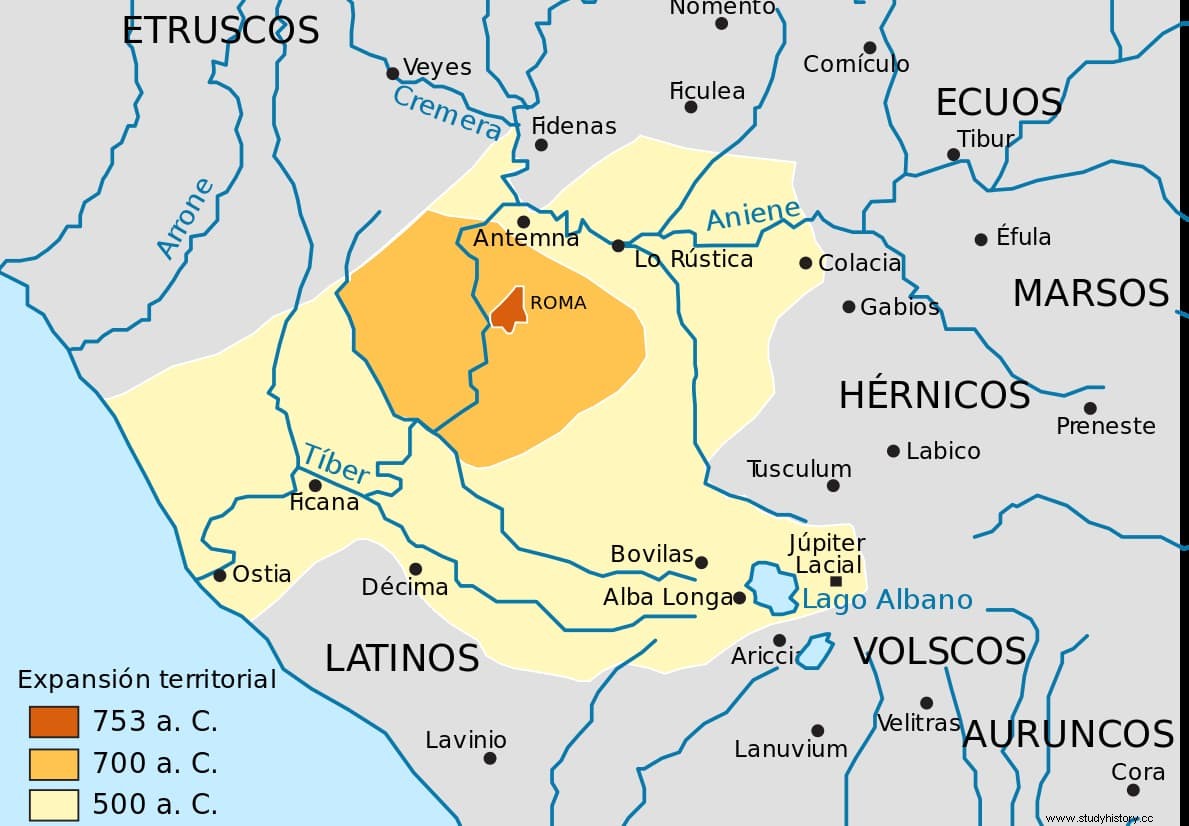
Dentatus was the first to take it from a meager list of nine names in the entire history of Rome, according to Pliny the Elder . But it is that the tribute of him was not only for that. In the year 455 BC, when Tito Romilio Rocco Vaticanus and Cayo Veturio Cicurino were consuls, a desperate request for help from the Latin city of Tusculum arrived in Rome to defend itself against an attack by the Aequi. Although the recruited army was composed mainly of patricians, volunteer plebeians were also admitted and one of them was Dentatus, who had emerged as the leader of the demands of his class. Romilio saw the opportunity to get rid of such an agitating element and sent him on an almost impossible mission, avoiding his protests; at least, that is how Dionysius of Halicarnassus tells it (not Livio, on the other hand), metaphorizing the clash of classes.
The order was to attack the powerful enemy camp to weaken it and then send the main force against it. For this he was granted only a small detachment but, of course, Dentato survived and the Aequi were defeated shortly after on Mount Algido:after a first assault, he withdrew, allowing the others to intervene, but then he returned to the charge, seizing the camp. and sowing panic among the Ecuos, who disbanded. Given the hardship that Rome was going through, the commanders decided to sell the loot instead of dividing it among the troops, as was customary, which meant that the plebeian volunteers, enlisted precisely for that purpose, were left without a prize.
The latter was very badly received and four years later, being Dentatus already a tribune, he took revenge on that consul who had tried to kill him indirectly by ordering him to be prosecuted for embezzlement from the state; he was sentenced to pay a fine of ten thousand ases (the coin of the early republican era, bronze, later displaced by the silver denarius). In short, Dentatus was a living legend for the Romans and in 450 B.C. he returned to the front once more, this time against the aforementioned Sabines, who were carrying out a raid destroying the crops.
There would be no place here to review all his battles one by one if we knew them. Only the data provided by Pliny the Elder can be reviewed. , according to which he participated in one hundred and twenty combats, eight of them singular (that is, in a personal duel against an enemy), having killed some three hundred opponents and received forty-five wounds (all of them in the frontal part of the body, none in the rear). And there is more because, as we said at the beginning, they awarded him the unusual figure of almost two hundred decorations.
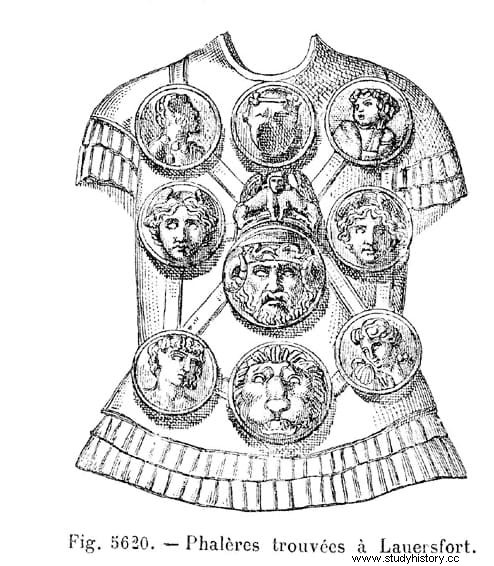
Among them, apart from the aforementioned grass crown, there were fourteen civil crowns (this crown was made with oak leaves and was given to whoever had saved another soldier), three wall crowns (gold, given to whoever was the first to scale the wall of a besieged city and raise the banner), twenty-five phalerae (some metal discs joined by straps that were initially worn on the helmet and then on the breastplate), eighteen purae hastae (It is not known exactly what it consisted of, but it seems that it was given to whoever had knocked down an enemy and preferably to the primus pilus ), eighty-three pairs (torques, snatched from the adversary) and about one hundred and sixty armillae (armbands for distinguished conduct, usually awarded in pairs), not counting garlands.
All these merits, accumulated over forty years of service to Rome, were not enough to avoid an end as tragic as it was heroic. The status acquired with his blood also implied making enemies and Dentato had excelled greatly in his defense of the commoners, as the conflict continued to the point that the secessio it would be repeated on at least two other occasions, in 445 B.C. and 342 BC. He wouldn't get to see them; the same year of his tribunate, having already about sixty years of age, he got involved in an altercation with the decemvirs, whose election had been interrupted when it was considered that they were no longer necessary due to the approval of the Law of the Twelve Tables, which equaled legally to all citizens but that sowed discontent by including a clause that prohibited marriage between patricians and plebeians.
Precisely the decemvir in charge of directing the drafting of said law, Apio Claudio Craso Inregilense Sabino, a very temperamental man who was accused of having a violent and tyrannical behavior, infiltrated a group of hired assassins in a patrol that Dentato sent through the city. border area. Although they managed to kill him, they unintentionally increased the legendary dimension of his victim even more because of the twenty-five that were only ten came out alive. When they returned they told that they had been attacked by an enemy detachment but then Dentatus' body was found surrounded by the corpses of Roman soldiers, which made the truth clear.
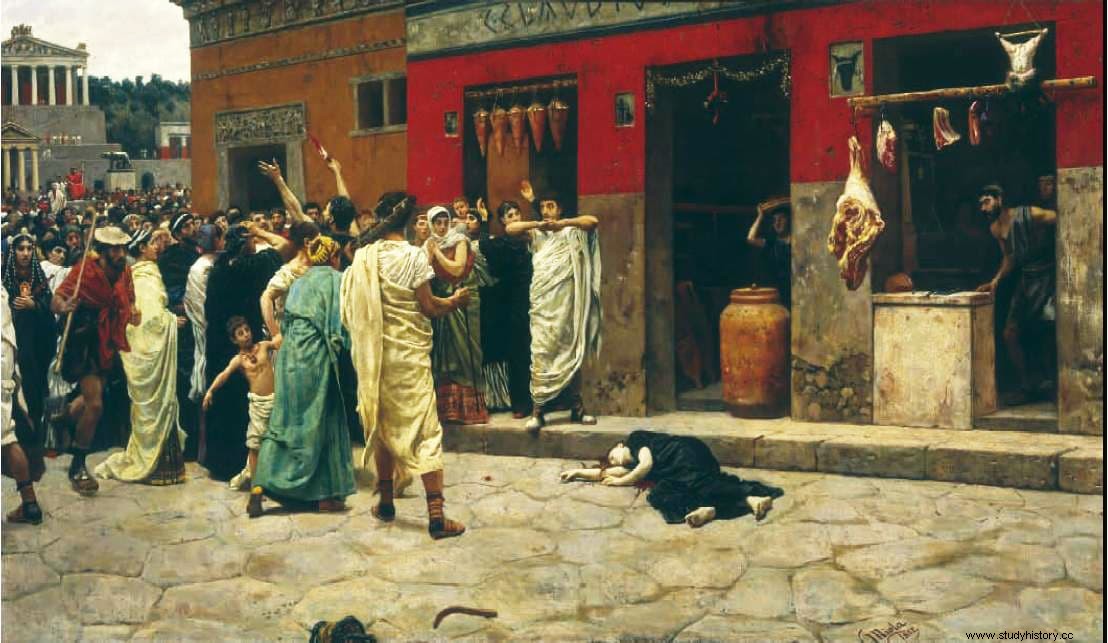
The outrage spread through Rome and not even the state funeral organized by the decemvirs to appease it had any result. Furthermore, Celery Claudius Crassus once again flaunted his incontinent personality by kidnapping the commoner Virginia, the daughter of a centurion, who had rejected his amorous advances. He had to free her but, at her trial, Celery bribed a client of hers to declare that her young woman was his slave and her father preferred to kill her. The people, indignant, overthrew the decemvirs and put Appius in prison, where he committed suicide, according to some sources, or was executed, according to others.
The story, narrated by Tito Livio, is more a legend than anything else, a new example of a metaphor for social conflict. But it makes a good setting for the death of Lucio Sicio Dentato.
Fonts
Roman antiquities (Dionysius of Halicarnassus)/History of Rome since its foundation (Livy)/Natural history (Pliny the Elder )/Universal history under the Republic of Rome (Polybius)/History of Rome (Sergei Ivánovich Kovalyov)/SPQR. A story from Ancient Rome (Mary Beard)/Lies and political power. Pseudology VII (Miguel Catalan)/Wikipedia
